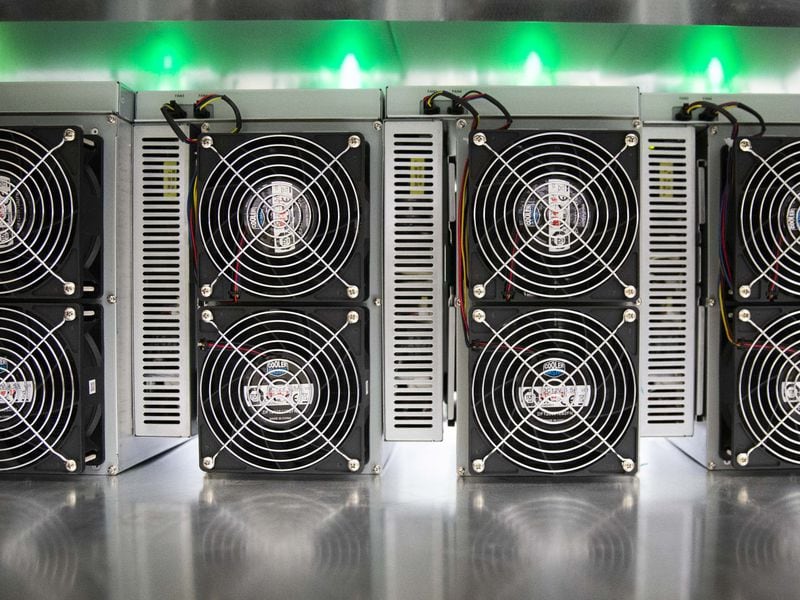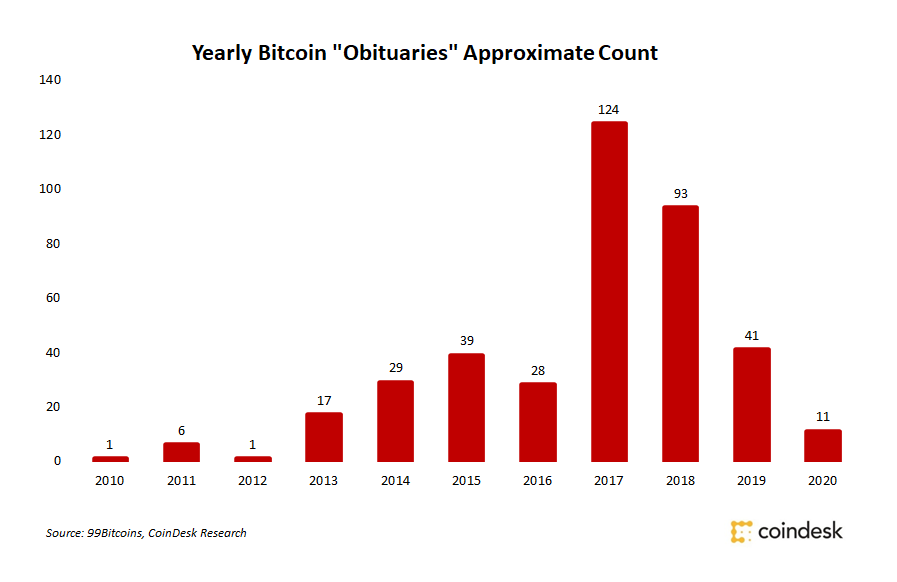The Promise of Trustless Environmental Monitoring
Despite myriad benefits to proactively address the consequences of climate change, society remains focused on expensive remediation as opposed to adaptation and prevention. This is in part due to the absence of accurate and transparent data to inform mitigation strategies.
Existing monitoring systems suffer from significant limitations including inconsistent data collection, manipulation, fraud, and delayed reporting, making it extremely difficult to create the necessary regulatory policy or proactively allocate resources. This hamstrings our collective ability to adapt to the worst effects of climate change.

01:00
Latin America’s Crypto Surge: A Battle Against Inflation

01:48
Nishad Singh’s Lawyers Ask Judge to Spare Him Prison; Italy to Raise Capital Gains Tax on Crypto

01:36
Bitcoin Jumps Above $67K to Nearly a Three-Month High

02:04
Tesla Is Moving Bitcoin; Trump-Supported Token Falls Flat
This op-ed is part of CoinDesk’s new DePIN Vertical, covering the emerging industry of decentralized physical infrastructure.
Blockchain could be the answer to the reliable, consistent environmental monitoring we need for climate planning. We at Montauk Climate Corporation (MCC) – a venture studio launched in 2023 by veteran climate operators and investors – have developed a thesis to address this data deficit by building a trustless environmental data aggregation system built on the pillars of cybernetics and DePIN. This technology is at the core of one of our recent investments, Raad.
Decentralized physical infrastructure networks (DePIN) connected to real-time data collection through a distributed and decentralized Internet of Things (IoT) network eliminates the potential for data tampering, enforces data control and encourages widespread participation. The IoT network allows for rapid response to sudden environmental changes, while the blockchain-based foundation allows for a streamlined incentive structure, facilitating one of the first non-esoteric use cases for blockchain technologies. The blockchain application also enables multi-stakeholder sources of truth, and creates a data commons and consensus for the physical world through multi-source data oracles.
The core of the system lies in a globally distributed and decentralized network of IoT environmental sensors that can be deployed by anyone, anywhere. This model creates a distributed, trustless system that is highly fault-tolerant, supports multi-stakeholder consensus, and verifies data through multiple independent sources. Unlike centralized systems, which depend on a limited number of expensive sensors managed by a single institution, decentralized data collection eliminates reliance on a sole source of truth and allows for public auditing. It is also a core principle of Bitcoin – ensuring that no single entity controls the data flow, eliminating manipulation risk.
Blockchain technology provides a tamper-proof and transparent ledger for data storage, and smart contracts validate incoming data against predefined criteria, further establishing a “data commons” for validation, consensus, and integrity.
This framework offers a path towards enhanced data integrity, continuous monitoring, and global coverage, while simultaneously creating a community around environmental and meteorological data. With DePIN, we can incentivize the rapid development of a decentralized sensor network that distributes ownership and control of physical infrastructure among various stakeholders.
The system also incorporates self-regulating feedback loops within the monitoring system, enabling dynamic adjustments to incentives based on collected data. These cybernetic feedback loops allow the system to self-regulate through smart contracts and a DAO framework, and optimizes its data collection strategies, making it self-governing. Additionally, this creates a dynamic adaptive control solution that aligns incentives to deploy more sensors, increasing speed of adoption and systemic growth.
One of the key use cases for this technology is methane monitoring. Methane emissions are an emerging concern under the United States’ environmental regulatory scheme. While shorter-lived than carbon dioxide, methane has significantly higher global warming potential in the short term. Accurate monitoring and reporting are essential for developing effective mitigation strategies and enforcing accountability for emitters.
However, current monitoring systems suffer from limitations including inconsistent data collection, data manipulation, and delayed reporting. The most recent administration has implemented a methane tax as well as strict reporting requirements on all methane emitters nationally. Oil and gas companies will have to spend considerable capital on sensors and third-party measurement, reporting, and verification (MRV), and will no longer have an option to self-report. In addition to environmental liability, rogue emissions represent lost topline revenue for the conventional energy sector, giving additional impetus to remediate methane leaks in a timely manner.
Additional applications extend far beyond methane detection. The system can be adapted to monitor air quality in urban areas, water quality in rivers and lakes, and identify deforestation hotspots. By incorporating a more horizontal protocol approach to standardized data formats and interoperability, the system can seamlessly integrate data streams from various monitoring applications for a breadth of use cases. This view allows for a more comprehensive understanding of the interconnectedness of environmental systems and challenges, empowering the development of integrated and effective environmental policies. It provides policymakers, researchers, and the public with unprecedented access to reliable, real-time environmental data, empowering more informed decision-making, accelerating our response to climate change, and paving the way for a more sustainable and equitable future.
While logic behind the system is sound, challenges for adoption still remain. There have been attempts to deploy DePIN networks across other use cases including WiFi and 5G networks, vehicle information and mapping with various degrees of success. Token models, especially in the United States and in particular during an election year, are subject to regime-dependent regulatory and compliance risk. We will need to develop tamper-evident, zero-knowledge proofs and remote verification techniques to ensure the physical security and calibration of diversely deployed IoT devices.
Additionally, actors attempting to extract value from these incentive platforms will defraud the network with incorrect data when there is meaningful financial incentive. There is precedent in the early days of Helium and STEPN. Therefore, designing appropriate incentive structures for network participation and governance, and crafting voting models to establish penalties for fraud are crucial for the long-term sustainability of our systems, especially ones that rely on emerging economic models. It would also require the establishment of proper reputation-based scoring systems that reward reliable data providers to further incentivize participation and trust in the network.
The evolution of bottom-up, self-organizing communities combined with a DePIN-based business model presents a promising approach to creating trustless, transparent, and adaptive systems. As we face the growing challenges of a changing climate, solutions harnessing the power of emerging technologies and systems designed for self-governance and organic growth will become more critical than ever to prepare for the ramifications of a changing climate.
Note: The views expressed in this column are those of the author and do not necessarily reflect those of CoinDesk, Inc. or its owners and affiliates.
Edited by Benjamin Schiller.









